
While diversifying DJ lineups has recently received plenty of attention efforts to increase the number of non-males releasing. music has so far lagged behind. We meet some of the people and organizations trying to change this
Before Leah Chisholm started making music as LP Giobbi, she was recruited into an all-women electronic band in Los Angeles called LEX. During her time playing in the band, she became aware that the producers in the studio with the band were always male.
“It never even occurred to her that she could produce her own work,” Chisholm’s business partner, Lauren A. Spalding, told me. That was, until Chisholm read an interview with Grimes, in which the Canadian artist said she produced all her own records. In an interview withForbes in March, Chisholm said, “I had the privilege of being raised by parents who were like, ‘You could do anything and you could be anything.’ But this light bulb moment went off for me because it taught me the power of visual representation. Even though I thought I could do anything, I didn’t see myself in that role.”
This March saw the publication of the fifth Inclusion in the Recording Studio? study, a music industry report curated by Dr. Stacy L. Smith and the USC Annenberg Inclusion Initiative. Using the Billboard Hot 100 Year-End Chart, the study looks at the artists, producers and songwriters credited in the chart year-on-year, from 2012 to the present day.
The first edition was released in early 2018, and revealed that in the years 2012 to 2017, women held just two percent of production credits, with the ratio of male to female producers standing at 49 to one. Additionally, out of 651 producers, only two of these were women from an underrepresented racial or ethnic background.
This year’s study shows that the percentage of women producers is now at 3.9 percent. With a total sample size of 1,567, only 10 of those production credits went to women of colour. The findings concluded that “the last decade has been one of insignificant change in the recording studio.” Similarly, in January 2020, the Guardian‘s Laura Snapes wrote about the study’s results that year, saying, “This is my 10th year covering these issues. While the noise has grown louder, little has changed.”
These statistics are telling, but they’re also limited. “Of course more than 2 percent of women are producers,” Spalding said about the Billboard charts. “But they can’t get in the fucking room to be recognised as such. This is the problem we are trying to address.”
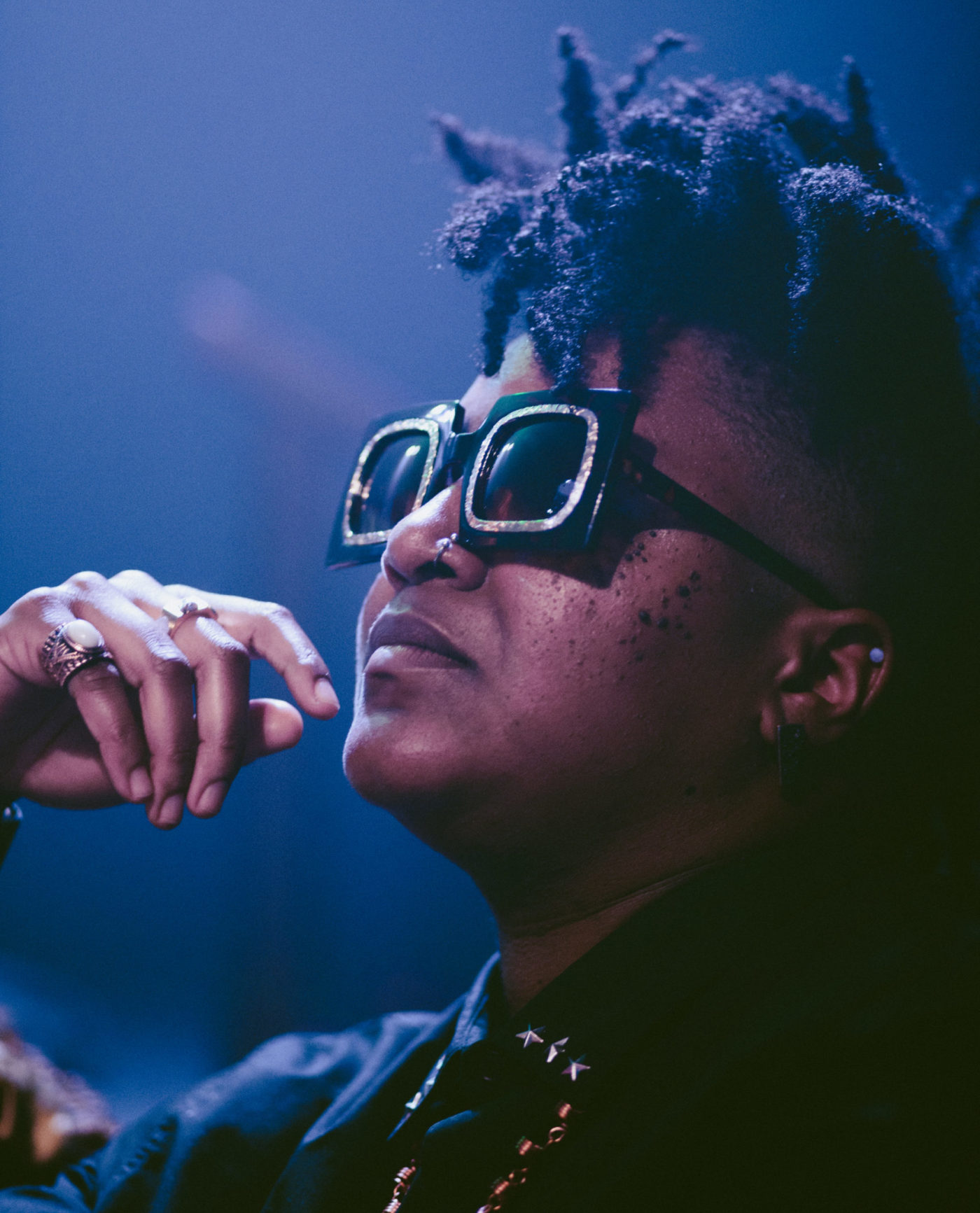
“We” is FEMME HOUSE, an educational non-profit organisation Spalding founded with Chisholm in 2019. Their mission statement: to “foster more equitable opportunity for women and gender-expansive individuals in the technical and behind the scenes areas of music.” FEMME HOUSE’s work aligns with that of Canadian producer Joanne Hill, AKA Sydney Blu, who launched the 23by23 campaign in late 2021, seeking to address the gender imbalance on record label rosters.
23by23 asks labels to pledge that, by 2023, at least 23 percent of their roster will be non-male artists. “When I started seeing the equalising lineups campaigns I thought, why not just get to the root of the problem—the record labels,” explained Hill. “If labels aren’t signing women, trans and non-binary artists, then the lineup situation is never going to change.”
A common explanation from labels whose rosters are male-dominated is that they simply receive less demos from non-male artists. “If that’s the case, are they avoiding sending you music because you’re an all-men label?” Hill said. By signing up to 23by23, the labels involved are also pledging to make themselves a welcome, approachable space for non-male producers.
Why has there historically been a gender imbalance on label rosters? Have things improved in recent years? And what tools can the industry implement to encourage positive change? I spoke with some of the people who are attempting to address these questions.
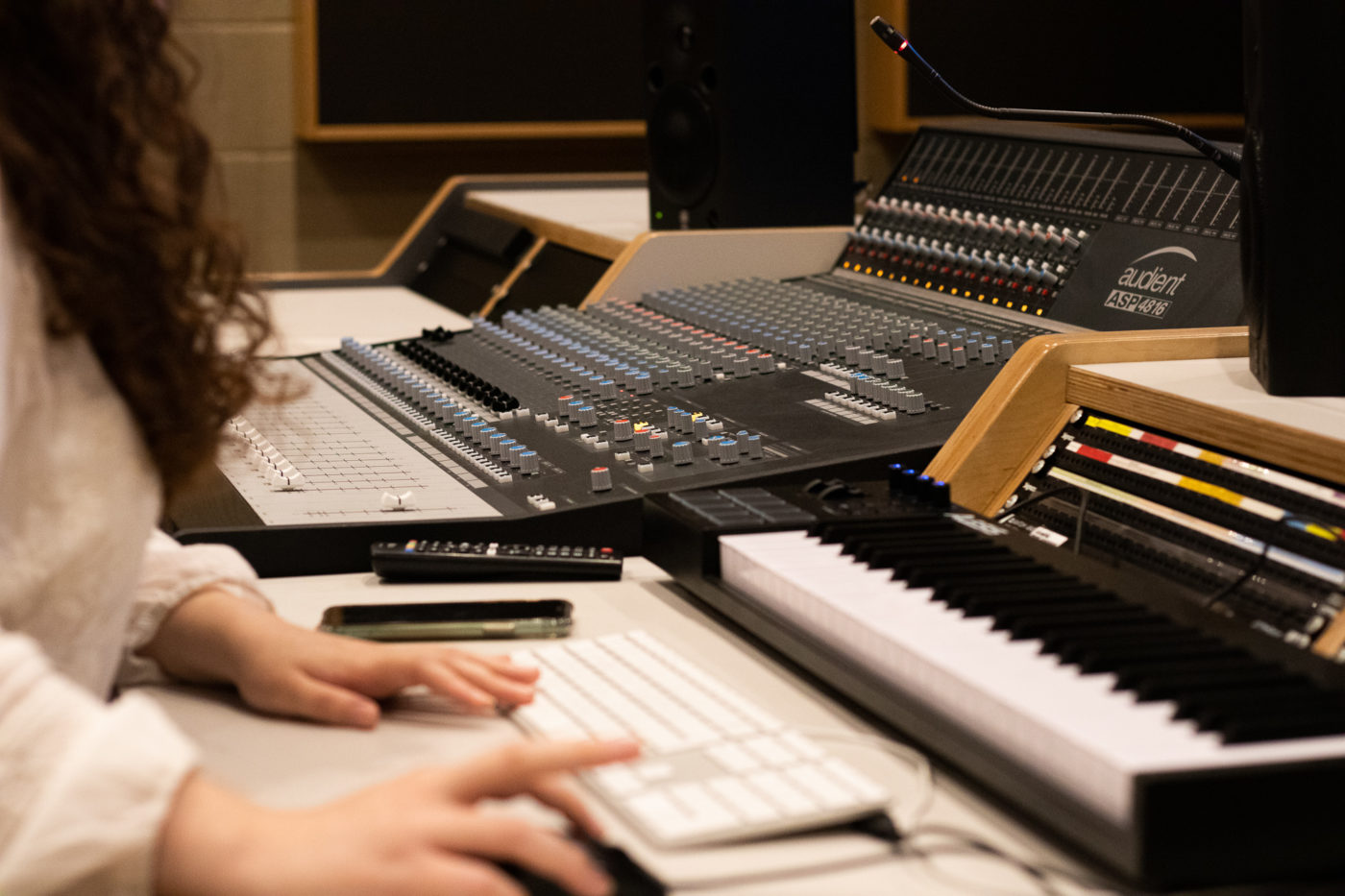
“The gender imbalance in music production doesn’t exist in a vacuum,” said Wager and Ian DPM, speaking jointly on behalf of their label, Scuffed Recordings. “In many ways it’s a microcosm of society as a whole, and illustrates the problems that women and other underrepresented groups face across all kinds of industries and hobbies.”
The phrase “boys’ club” was used multiple times by those I spoke to. Going back through the decades, the music scene has been regarded as such, Soma Records coowner Glenn Gibbons said, highlighting the fact that many record labels in dance music were, and still are, run by men. “These historical barriers are being broken down more than ever before,” he said. “But they’re so deeply ingrained in the industry that it will take time to demolish them.”
Hill began DJing in her hometown of Toronto in 2000 and started producing her own music a few years later. She experienced the boys’ club environment in people’s approach to A&R. “I often found I wasn’t part of the guy crew,” she said. “I was sending my music out and they were just signing their bros. I was like, ‘Did you even listen to the record? If I said I was a guy, would you have signed this?’”
It was this attitude and the unconscious bias that “women aren’t good producers” that proved the biggest barrier for Hill. “Men automatically took other men more seriously,” she said. “There’s also a lot of bullshit that people say about women artists, such as ‘she fucked her way to the top,’ or ‘she has people writing her music for her.’” After consistently putting out music and running her own labels for a decade, Hill still, in 2022, has people making these false claims about her work.
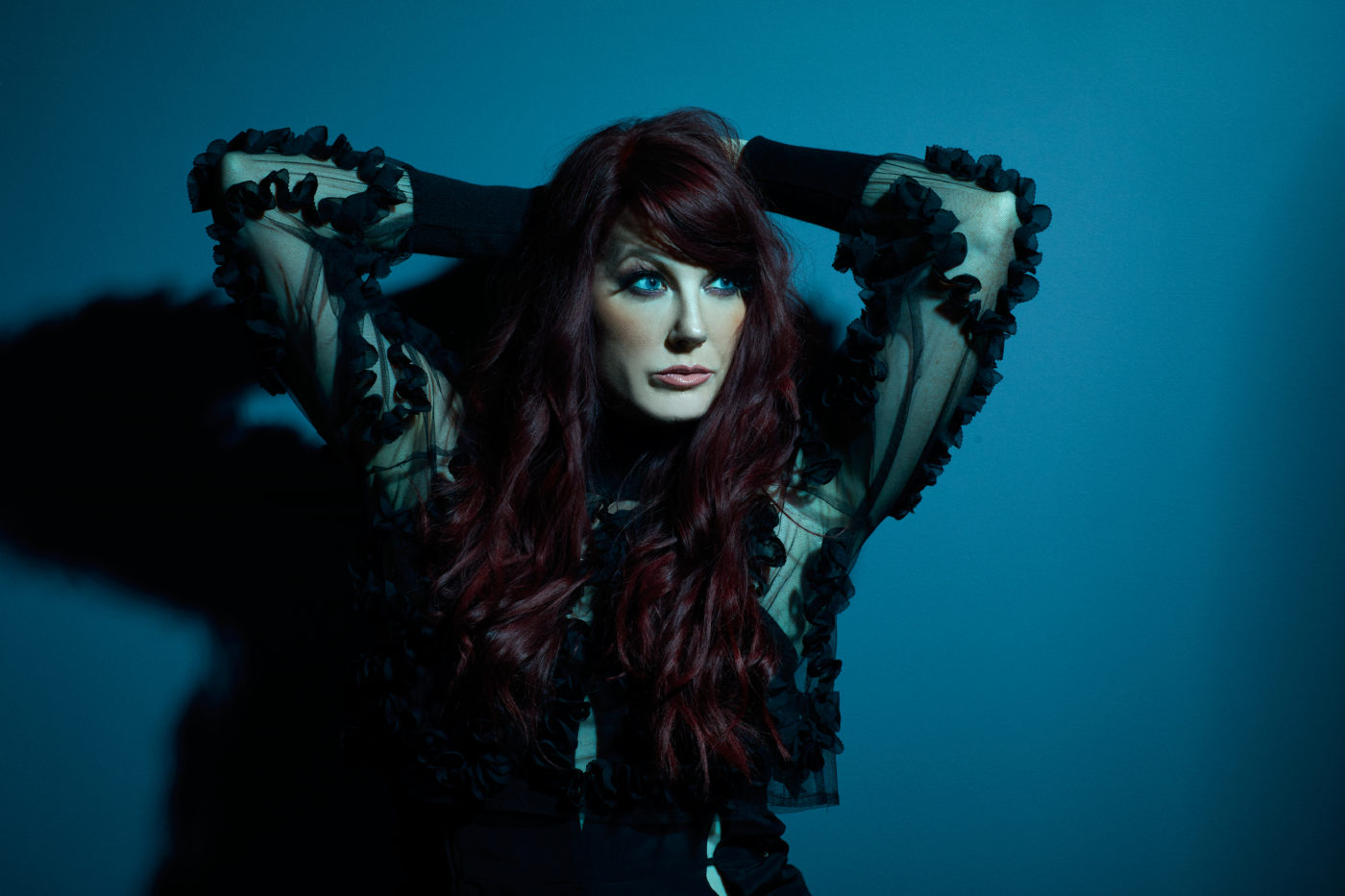
Rebekah, an ambassador for 23by23, has been DJing since 1996. She and Sydney Blu met for the first time in the mid 2000s, and she recalls how the male-dominated scene back then created an atmosphere of competition between the few women on lineups. “We weren’t very friendly to one another,” Rebekah said about her initial interactions with Hill. “We were coming from this background of women being the minority and we’re all each other’s competition.”
The pair have since become friends and support each other’s efforts to make dance music a safer space. Hill is an ambassador of #ForTheMusic, Rebekah’s campaign against sexual harassment. “It all links to one another,” Rebekah said. “If there was equality in all areas of music, sexual harassment wouldn’t be happening.”
It’s also about unlearning the early patterns the scene instilled in her, said Rebekah. When starting out, she admitted she wasn’t putting the work in because the message from the industry was that her “looks were probably enough.” “We were rewarded for being good looking,” she said. “The message was ‘you can get the gig, but you have to look or act a certain way.’ I had to undo a lot of those conditionings.”
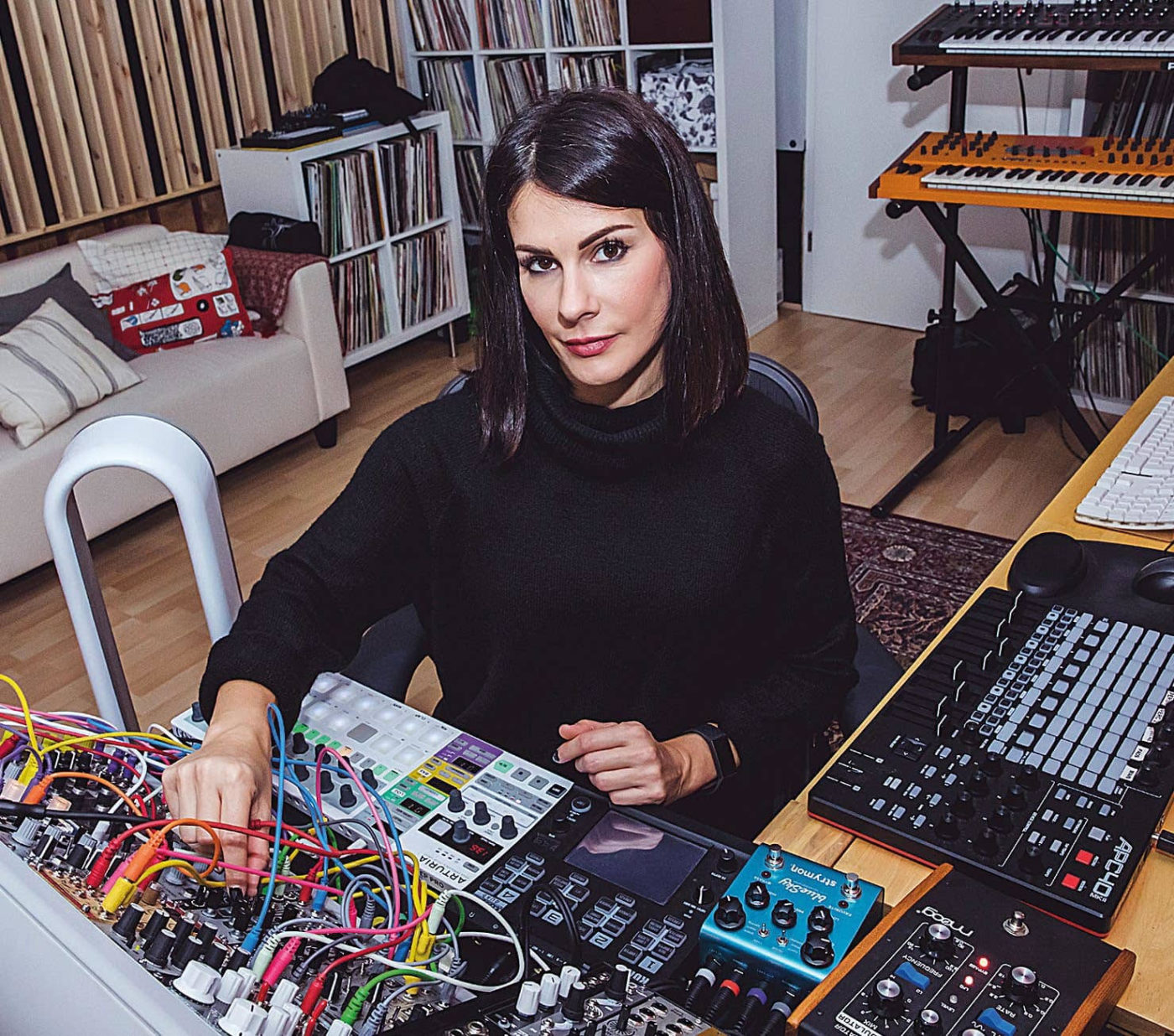
For Jamz Supernova, a DJ, BBC radio presenter and head of the label Future Bounce, the conditionings that need to change were instilled earlier on. “It goes back to the nuances of how we raise children,” she said. “The toys we give to girls and boys.” Stereotypically, she said, boys are more likely to be given toys with electrical elements, which develops into games consoles, from which it’s a natural step towards making music.
These skills aren’t nurtured enough across genders at school, Jamz said. “If it’s always engrained in boys that they’re confident using equipment from an early age, then they won’t bat an eyelid when it comes to learning new things.” In comparison, she added, women are quick to put themselves down: “I couldn’t do that.” “Too many buttons.” “Oh, it’s a bit too techie for me.”
It’s therefore no surprise that the gender ratio in studying music production is also imbalanced. For Rebekah, this is a key thing that needs to change. She recently spoke with her own tutor, from around 2006, who said the number of women on production courses is the same today as it was 15 years ago. “It’s the first piece of advice I give to people,” Rebekah said. “If you want to DJ, make music, go back to school and study, because it will give you confidence and lay the foundations.”
The education process can also help make important connections. Take Toolroom Academy, for example, which has its own women, trans and non-binary-focused programme called We Are Listening. Alumni from the course benefit from a speedy demo process where their tracks will always be heard by Toolroom’s A&Rs. “It helps the artists feel more confident,” Toolroom Academy’s project manager, Carly Newman, said. “They know the team, they know the teachers, they’re building a relationship with Toolroom and they can contact us for anything.”
A younger friend of Jamz’s, who she’s mentored for years, studies sound engineering and production in Liverpool. She is the only woman on her course. “She finds it really hard,” Jamz said. “She goes in everyday with a brave face, because someone’s going to try and put her down somewhere.” This is despite the fact that Jamz’s mentee is already active as a DJ—rather than being treated with respect, she feels as though she’s scrutinised even more.
“There’s a saying in the African American community which is ‘twice as hard, half as much,’” Spalding said. “And I think that’s true for many marginalised communities—women, queer people, gender expansive folks, creators of colour.” This phrase brings to mind how Jamz’s mentee is being scrutinised, as well as a conversation I had with the artist HAAi recently, around the release of her debut album. She told me she’d always been obsessively protective of her work, because a woman’s ability is so often questioned or doubted.
“You have to fight for your space and to be heard,” said Jamz, “and you have to be so good that you can avoid all criticism.” Men don’t often talk about the process of working together or having people help them finish their records, she added. “If a woman admitted that, they would be slaughtered,” she said. “So they feel they have to learn it all, be the best, and only then will they release music.”
Wager and Ian DPM have seen this lack of confidence in the demos they receive. The Scuffed inbox is almost exclusively music from men, but when they launched their artist development scheme in January 2021, they were flooded with demos from women, trans and non-binary producers. “We had more applications than we ever expected,” Scuffed said. “And one of the main points that came up repeatedly was that [these producers] lacked confidence in their productions. In many cases it was unwarranted, as the music was really strong.”
Future Bounce ran a production competition in December 2020, and 95 percent of the entrants were male. But Jamz took note of the non-male artists and nurtured those relationships, giving them time and space to grow in confidence. A result of this was Blck Mamba, whose debut release, What U Gonna Do / Baby Got Juice, was released via Future Bounce in November 2021.
FEMME HOUSE launched in 2019, with a panel featuring Never Normal Records founder Suzi Analogue. On moving to New York, Analogue felt that there wasn’t a space for young Black electronic artists to showcase their work, and so she started the label. For Spalding, Suzi Analogue is a clear example of “twice as hard, half as much.” “She’s probably one of the most brilliant creators of all time,” Spalding said. “And it is completely insane that she has had to build her own house. We’re so often forced out of these systems, or they are such harsh, unsafe environments, that it feels we have no choice but to build our own things to progress and move forward.”
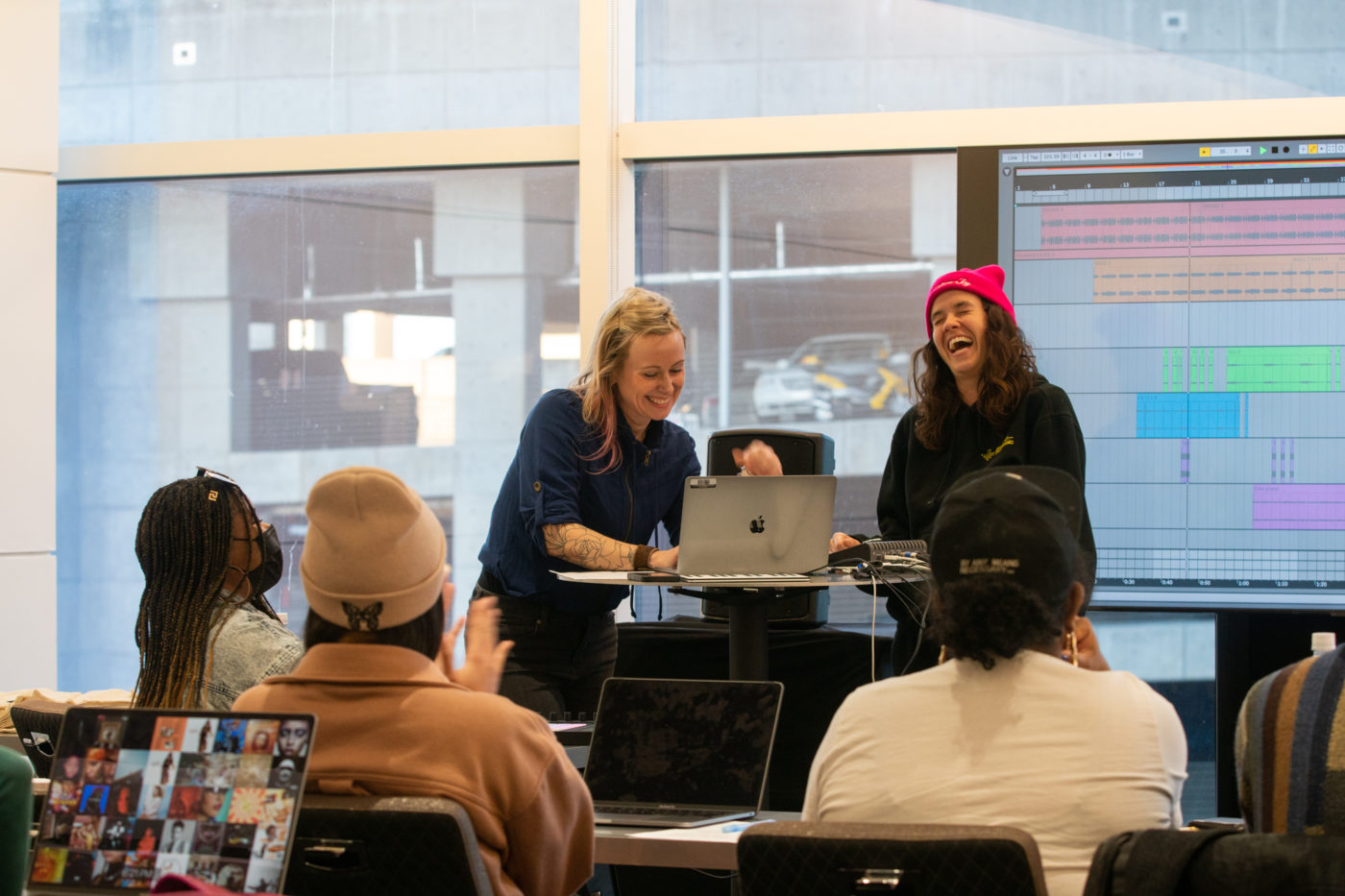
Just like Chisholm was thinking before reading about Grimes, you’re unlikely to believe you can do something if you can’t see yourself in it. “You can’t be what you can’t see,” said Hill, a theme that ran through these interviews. “Representation matters when it comes to seeing yourself in roles that you may not have considered before,” said Gibbons. For Newman, when she was growing up, her hometown scene was made up entirely of male DJs. “I didn’t even know women DJs existed,” she said.
As Spalding explained, it’s also a process that goes on in our brain. “Seeing someone that looks like you do something or be something is actually one of the first ways that human beings synthesise their own ability. So often marginalised communities are getting messages very early on about all the places that they don’t belong, and all the ways they don’t fit. Of course that impacts the choices you make.”
With everything that’s been working against women producing music for all this time, how can aspiring artists gain the confidence they deserve? For Jamz, it again goes back to those formative years, and the characteristics we encourage or don’t encourage in women. For example, the idea that women shouldn’t be pushy or bossy, but men can be boisterous and a go-getter. “I think language and the emphasis that we put on people’s behaviour really has a knock-on effect,” she said.
“Maybe that’s how the guys just generally are, how they grow up,” Rebekah wondered aloud. Spalding, who describes herself as Black, queer and masculine presenting, laughed as she said, “One of my daily affirmations is like, ‘No matter how I wake up feeling, please let me go about my work today like a white man.’” If it means having the confidence to send that email, then think to yourself, ‘what would a man do?’”
Jamz agreed: “Even if you don’t think the music is quite there yet, just start the relationships. You never know what might come of it.” Utilise your connections, she continued. Share music with each other, build a network, get support.
Jamz is essentially describing the Metapop community that Sydney Blu is building for 23by23—somewhere for artists to talk about their experiences and learn from each other. A supportive community like this can then be used to build resilience against the fact that even the most prolific artists get told “no” sometimes, as both Scuffed and Newman mentioned. “Don’t take it personally,” Newman said. “If you get feedback take it as constructive criticism and don’t give up.”
Hill believes that one of the key ways in which labels can make themselves more approachable is by giving feedback. So often she would send her own demos and get no response. “There are some labels that say they’re too busy to give feedback,” she said. “Well, if you’ve got only men on your label, maybe you should make some time.”
Recruiting more women, trans and non-binary people into the label’s workplace can also make the environment more welcoming, said Jamz. If your A&R team is made up of only men, then you’re only getting one viewpoint. The more women in the room, the more those women will feel empowered to have a say, and ensure that women artists aren’t held to different standards than men, which is what Jamz has seen in her own experiences at the table in A&R meetings. “If you’re the only woman fighting for the women being discussed,” she explained, “then it feels like every time you say something you are being defensive. But you’re not, you’re just trying to get the room to unlearn the way it looks at these artists.”
Outreach is also vital for labels to become welcome spaces for non-male producers. Programmes like Scuffed’s artist development programme are a great way of telling people you are open to hearing their work. “It illustrates that something as simple as putting out a call specifically to non-male artists will get people to come because it makes them feel safe and acknowledged,” said Spalding.
Labels can also reach out to producers directly and ask to hear what they’re working on. “If it is important to them,” said Lizzy Ellis on behalf of Bristol-based music tech initiative Saffron, “labels should take active strides to find ‘minority’ artists and reach out to them. Don’t expect them to just fall into your lap without doing the necessary research and discovery yourself.” With Soma, Gibbons said, most of the women or gender non-conforming artists on the label are artists they have approached first.
Although there is work to be done, everyone I spoke to agreed that the environment has changed for the better in recent years. “It makes me super emotional,” said Rebekah. “Now I don’t see these people as threats, they’re my techno sisters. I see Jaguar, for instance, supporting women and they’re all having so much fun. It’s not even on their radar to be jealous of one another. We can all support one another and enjoy it.”
In the upper echelons of club music, boardrooms and release schedules remain overwhelmingly male. Although, as Gibbons noted, there are increasingly more women among the biggest artists in the world. But at a grassroots level, Jamz felt there are many more women involved industry-wide than there were a few years ago. “In some ways there’s more visibility than ever,” she said. “But we have to keep reminding people of the actual statistics. For every TSHA coming through, how many men have come through at the same time?”
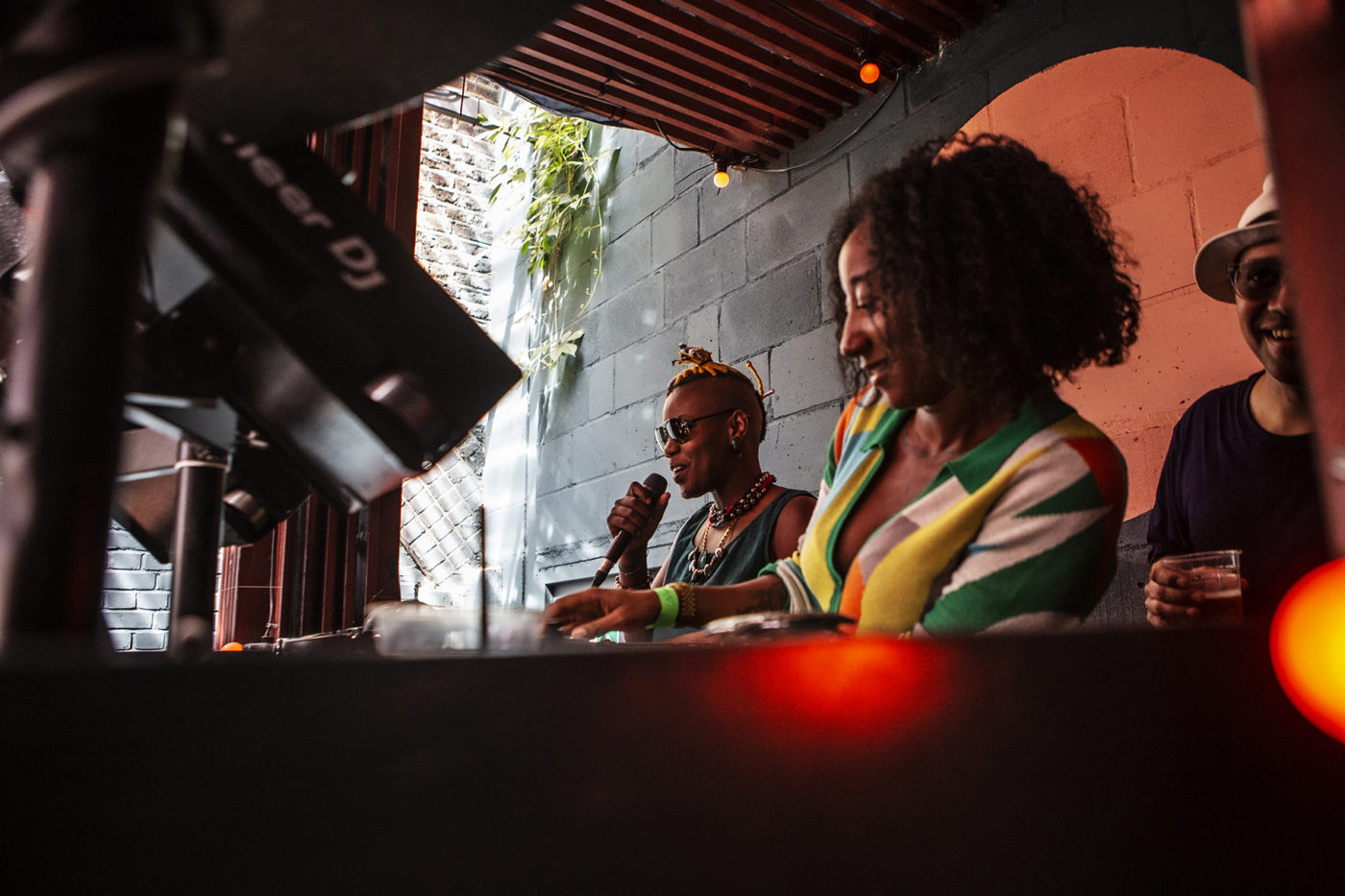
Jamz also thinks that technology has opened up opportunities for non-male artists who might not feel comfortable being in studio sessions with men, or who might want the autonomy to do things exactly as they want. She’s observed an increase in women who sing, write and produce their own records because technology allows them to do so in the safety of their own space. “I think that production software being available to nearly anyone with access to a decent laptop has gone some way to breaking down that barrier,” Scuffed agreed. “The situation is improving. There has been more of a move to shed light on underrepresented genders in music—whether that’s through platforms doing more to showcase those artists, or through schemes like Jaguar’s Future 100 or Saffron’s Springboard scheme.”
Ellis agreed with Jamz but also talked about the importance of having your own music-making community. “Our goal at Saffron is to gradually change the spaces that have been traditionally male-dominated,” she explained. “And make them more open and accessible, rather than perpetuating further creative isolation.”
As two men running a label, Scuffed have said they don’t ever want to seem like they’re speaking for women. But they acknowledged the importance of men speaking up. “It’s like some men feel uncomfortable addressing the issue because they might get something wrong,” they said. “But any steps to move things in the right direction count.”
In recent years, Spalding has observed, and felt heartened by, marginalised communities who are reclaiming their own power and creating their own platforms. “I think that there is a very necessary and palpable shift in consciousness that seems to be happening right now,” she said. “I think we’ll see a greater power shift to creators. You can only hope that the institutions and the systems come along for the ride and make the necessary changes.”
Once the changes are made, the next challenge is to ensure long term progress. “We need to hold people accountable,” Jamz said. “23 percent by 2023? OK then, what should their measurables be in, say, 2028?” She referenced PRS Foundation’s Power Up initiative, a 10-year plan to support Black music creators and industry professionals.
As for any other challenges labels could face with an initiative like 23by23, Spalding doesn’t believe there are any. “It’s such an easy target. It’s not hard, and it shouldn’t be framed as hard, because that’s consistent with these sorts of messes in the first place. Making your environments inclusive and representative of the communities to which they serve is not a heavy lift.”
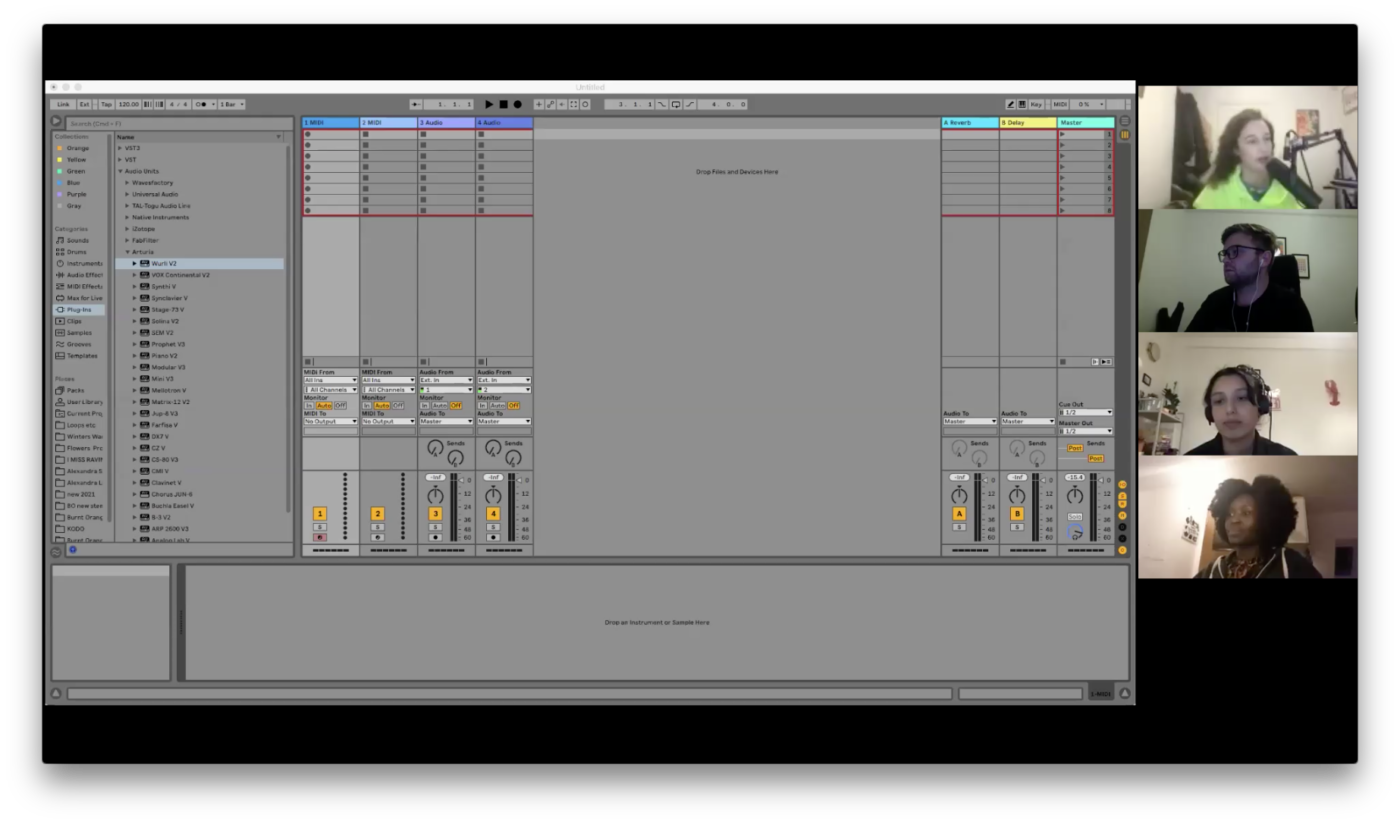
Beyond signing more non-male artists to record labels, what else can be done to create positive change? The most unanimous answer was to hire more women across the industry, particularly into higher positions. “It’s so important to make women visible in every job,” Newman said, “to inspire the younger generation that they can do that too.” And if you work in the music industry already, said Scuffed, then show consistency and dedication to showcase talent from traditionally underrepresented groups. “Instead of shouting out women artists once a year on International Women’s Day,” they said, “make it something you consider every time you update your playlist, put together your radio show or curate the lineup for your club night.”
Finally, for Spalding, it is remiss for anyone who works within dance music to fail to acknowledge the originators. Dance music exists because it was created by Black people, queer people, the most marginalised people in society. And yet in 2022, she said, the arbiters of house music are 25-year-old white men. “Something as simple as acknowledging that can go a long way in making communities of colour, women, LGBTQIA+ people feel safe, seen and heard,” she said. “Which will then encourage them to share their projects, instead of feeling like they have no choice but to build their own systems.”
FEMME HOUSE has started working with REVERB, a non-profit in the US which creates Action Villages—a marketplace-style setup at stadium shows which allows fans to connect with local and national non-profits and campaigns. During some of the Action Villages so far, the team distributed the “if you could do anything quiz,” which asks fans what they would do with their lives if they could do or be anything with no parameters or boundaries. The next question, based on the 2 percent statistic of women producers, asks concertgoers: If you receive messages constantly that you are only 2 percent likely to succeed, would you still try? The answers, Spalding said, are overwhelmingly yes, which is something that gives her great hope for the future. “I think we’re learning and deciding as a society, generationally, to ignore these messages or push past them as best we can.”
When 23by23 launched, it received backlash on social media from people who assumed that the intention of the campaign was to force labels to sign women, no matter what the music sounds like. “That isn’t what the campaign is about,” Hill said, keen to get this message across. “It’s about collaborating with and assisting labels to help them diversify. No one is forcing anyone to do anything.”
“There’s a real fear with campaigns like this,” said Rebekah of the backlash. “[A fear] that the music is going to end up less than what could possibly be made by other people. But we’re not taking anything away, we’re just trying to even the playing field. Good music is good music.”
As with all efforts to diversify industries or address historic imbalances, it’s not about picking a woman over a man just because. It’s about finding brilliant, talented women, trans and non-binary artists and giving them the space to shine—a space that men have had access to for much, much longer, and without the many barriers identified here.
Words: Katie Thomas
Photos
Header: Emily Damyan
Rebekah: Maria Staggat
Workshop: Owen Lucas Jennings
Jamz Supernova: Fabrice Bourgelle
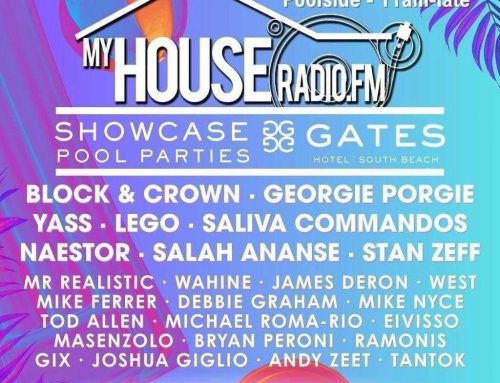




Leave A Comment
You must be logged in to post a comment.